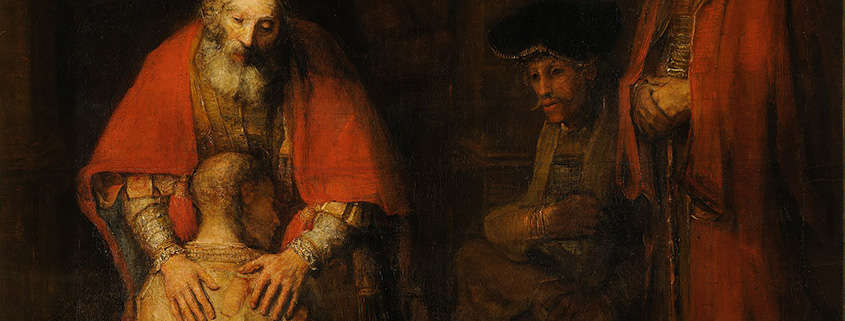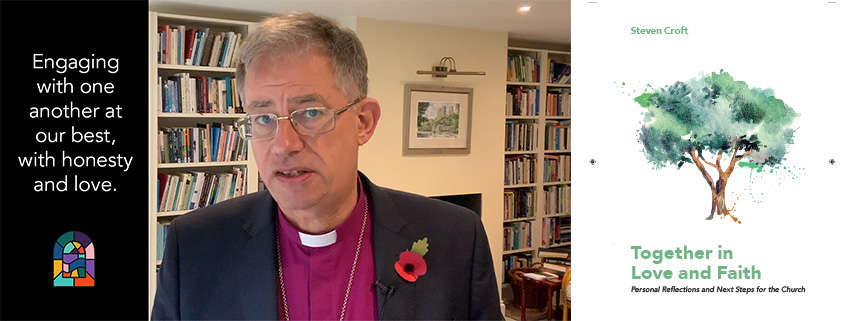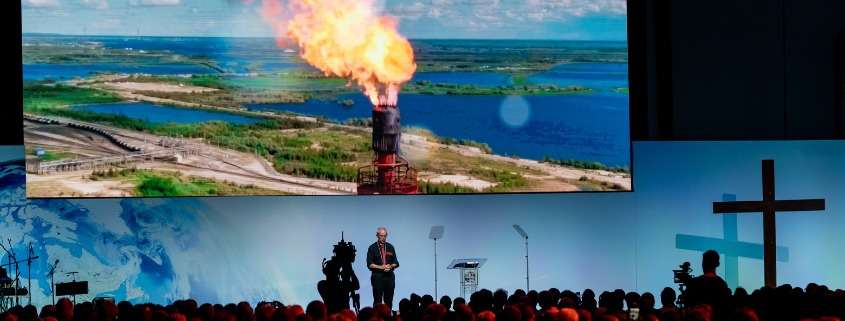On 9 February 2023, the General Synod approved the motion brought by the House of Bishops as the next step in the Living in Love and Faith process.
As you will have seen the motion laments our failure as a church to welcome LGBTQI+ people; welcomes the decision of the House of Bishops to draw up new pastoral guidance to replace Issues in Human Sexuality and looks forward to the House of Bishops further refining, commending and issuing the Prayers of Love and Faith. You can find the full text of the amended motion here.
The Synod debate was demanding. Many of our Oxford representatives spoke at different points and reflected different points of view. All spoke graciously and clearly. My own contribution to the debate came near the beginning.
I welcome Synod’s decision as will many across the diocese. Some will be disappointed that the proposals were not able to go further than offering Prayers of Love and Faith and new guidance. Others will believe that the Bishops and the Synod have gone too far.
It is clear from the voting in the Houses of Clergy and Laity that whilst a majority are in favour of moving forward in this way, there remains a substantial minority opposed to change for a variety of reasons, and this is reflected in our own diocese.
The debate in the Synod chamber was both passionate and respectful. Synod rose to the occasion. It was also an emotional debate. People laid themselves bare. There were tears afterwards on all sides.
Please hold in love and prayer those from our own diocese who took part and those who led on the debate nationally. You may want to express your appreciation for this task undertaken on behalf of the whole Church to the Synod representatives who are linked to your own deanery.
Most of the Oxford representatives met together two weeks before Synod in person, and we spent four hours together working through the agenda. I know everyone took their responsibilities extremely seriously. We were thankful for your prayers.
The House of Bishops were present in the Synod to listen, especially in the group work. In March we will return to the task of refining and developing the Prayers of Love and Faith and to developing new Pastoral Guidance.
At present we expect both texts to be ready in some form by the July meeting of the General Synod. It’s important to stress, for the moment, that nothing has changed in the Church of England’s pastoral practice, although we do now have a clear direction of travel from the Bishops and affirmed by the General Synod.
Locally and nationally we will continue to listen carefully as this process continues, including of course to LGBTQI+ people and their families. There will be mixed feelings: for many a sense of welcome progress combined with a weariness that the debate will need to continue and disappointment that the Church has not been able to offer the celebration of equal marriage.
As bishops we will also be listening carefully to clergy and churches which are not able in conscience to affirm same sex relationships. We are already in dialogue with a range of individuals and groups across the Diocese of Oxford on this. As I said in my speech to the General Synod:
“My vision for the Diocese of Oxford is that we will be a diocese where all are affirmed and cherished, where same sex relationships can be celebrated and those who hold the traditional view are honoured and respected”.
This will be a demanding vision to realise and each of us has a part to play. I think all of us will need space for some prayer and reflection after the sometimes intense conversation of the last few weeks.
I would encourage taking good time for this in every place locally – but also encourage everyone to wait for the eventual outcomes of the national process before making local decisions which might flow from these debates. The four bishops and all the senior team are very willing to be in dialogue.
Finally, I’ve been drawn more and more over recent weeks into the parable of the two sons in Luke 15. All of us, I am sure, want the whole Church to reflect the radical, inclusive love of the father for the younger son in that powerful moment of welcome caught in Rembrandt’s painting.
The father sees him coming from afar and runs to meet him. He puts his arms around him and kisses him. He calls for the best robe, for a ring for his finger and sandals for his feet. There is the most wonderful party.
But my own focus has been on the father at the end of Jesus’ story. The older brother stays outside the celebration. What does the father do? He humbles himself and goes outside to where his other son sits, hurting. He listens to him and urges him to come in.
There is no easy identification here of one group in the debate with the younger son and the other with the older. There are sisters and brothers in each part of this conversation who are bruised and hurt. Each of us might feel at any time as though we have left the party.
But those of us who are called to pastor the Church in this time are called to be like the father at this moment in the story: to go out to them and listen to the pain and, always, to offer the invitation to come and join the celebration. The father’s extraordinary humility and love should be our pattern.
We do not always know how to do this. We do not know the outcome of this part of the story in the gospel. But our calling to love beyond measure is absolutely clear. The Son who tells the story gave his life to draw us and all the world into a single new humanity.
With love in Christ in testing times,
+Steven
10 February, 2023
Image: Rembrandt Harmensz van Rijn – Return of the Prodigal Son – Google Art Project
This text was first published as a letter to people in the Diocese of Oxford




